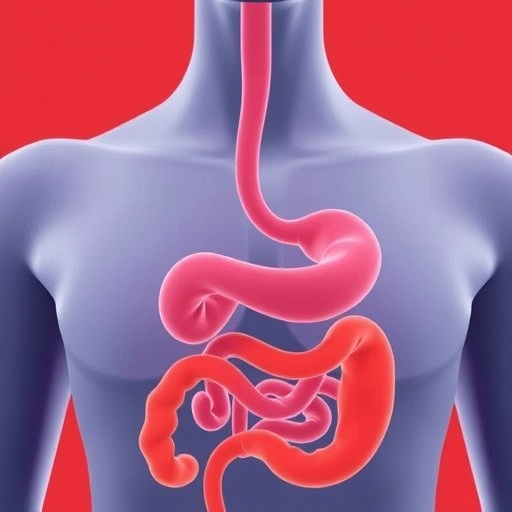Recent studies are shedding light on the complex interactions between the immune system, the microbiome, and the gut-brain axis, especially in connection with major depressive disorder (MDD). A groundbreaking article titled “Do immune system and microbiome–gut–brain axis interactions associate with major depressive disorder?” authored by Zhao, H., Tao, L., Tang, C., and others, investigates the potential links that may exist between these factors and the prevalence of MDD. As mental health issues continue to rise globally, understanding these interactions could pave the way for novel treatment strategies for those afflicted.
The article, published in the prestigious journal J Transl Med, delves deeply into the physiological connections that exist between the gut, the immune system, and brain function. The research postulates that the microbiome, composed of trillions of microorganisms residing in the gastrointestinal tract, plays an influential role in modulating immune responses that can subsequently affect brain health. This nuanced perspective suggests that mental health might not solely be influenced by neurotransmitters within the brain but is part of a more extensive physiological network encompassing the gut and immune function.
As researchers like Zhao and colleagues explore this intricate relationship, they highlight how dysbiosis, or the imbalance of gut microbiota, can lead to altered immune responses. This imbalance might contribute to neuroinflammation, which is increasingly being recognized as a crucial factor in the pathogenesis of MDD. The inflammation may not only disrupt normal brain functions but might also be linked to the physical symptoms commonly seen in depressive patients, such as fatigue and cognitive fog.
The research illustrates how the gut is often referred to as the “second brain,” emphasizing its vital role in mental health. Neurons in the gut communicate with the brain, producing neurotransmitters such as serotonin, which plays a central role in mood regulation. Over 90% of the body’s serotonin is produced in the gut. Thus, any disruption in microbiome health can have far-reaching implications for emotional and psychological well-being. The researchers advocate for a multi-dimensional approach in treating MDD that considers optimizing gut health as a potential strategy.
To underscore these findings, Zhao et al. point to clinical evidence demonstrating that probiotics and dietary changes can positively influence gut microbiota diversity and composition, leading to improvements in mood and overall mental health. Such interventions might prove beneficial as adjunct therapies to conventional antidepressants, offering patients additional avenues for managing their symptoms more effectively.
The authors also delve into the bidirectional nature of the gut-brain axis, where not only do gut signals influence brain activity, but mental states can also affect gut health. Stress, anxiety, and depression can all alter gut microbiota composition, leading to a vicious cycle that perpetuates both gastrointestinal issues and mental health conditions. This highlights the importance of considering psychological health when addressing physical ailments.
Moreover, the immune system acts as a critical bridge connecting the gut and the brain. Zhao and colleagues detail how immune cells, such as cytokines, can be affected by gut microbiota, perpetuating inflammatory responses that negatively impact brain function. In particular, pro-inflammatory cytokines have been implicated in the development of mood disorders. A better understanding of how the immune system reacts to different microbiomes can be foundational in developing holistic treatments for MDD.
Importantly, the authors address a gap in current research: while much is known about the role of neurotransmitters and genetics in MDD, there has been a relative lack of focus on the gut-brain connection. This research positions itself as a seminal contribution to bridging this gap, encouraging further investigations into this fascinating area of study. By focusing on the interactions between gut microbiota, immune responses, and brain functions, future studies can benefit from a more comprehensive understanding of mental health.
The implications of this research extend beyond MDD, as gut-brain axis studies suggest connections to various neurological disorders and overall cognitive health. As the pharmaceutical landscape shifts towards more holistic, integrative treatment options, findings such as those presented by Zhao et al. serve as a compelling call to action for researchers, clinicians, and policymakers alike. By embracing a broader understanding of mental health, it may be possible to develop innovative therapies that resonate with the complexity of human biology.
As we look forward to future research in this field, the potential for combining dietary modifications with psychological treatment offers hope for improving outcomes for those battling depression. Among patients suffering from MDD, addressing gut health might not only ameliorate their condition but also encourage a more enriched quality of life. This work not only signals a shift in perspective but also encourages a collaborative effort across various fields to tackle mental health challenges holistically.
In conclusion, Zhao and colleagues’ exploration of the intersections between the immune system, microbiome, and gut-brain axis presents a promising frontier in understanding major depressive disorder. As the evidence continues to accumulate, it invites a broad re-evaluation of how we view mental health treatment. The integration of microbiome research into clinical practices may fundamentally change our approach and outcomes for individuals suffering from depression, reinforcing the necessity of an interdisciplinary framework in mental health research and treatment.
Subject of Research: Interactions between the immune system, microbiome, and gut-brain axis in relation to major depressive disorder.
Article Title: Do immune system and microbiome–gut–brain axis interactions associate with major depressive disorder?
Article References:
Zhao, H., Tao, L., Tang, C. et al. Do immune system and microbiome–gut–brain axis interactions associate with major depressive disorder?. J Transl Med 23, 1279 (2025). https://doi.org/10.1186/s12967-025-07176-w
Image Credits: AI Generated
DOI: https://doi.org/10.1186/s12967-025-07176-w
Keywords: Gut-brain axis, microbiome, immune system, major depressive disorder, neuroinflammation, probiotics, mental health.




